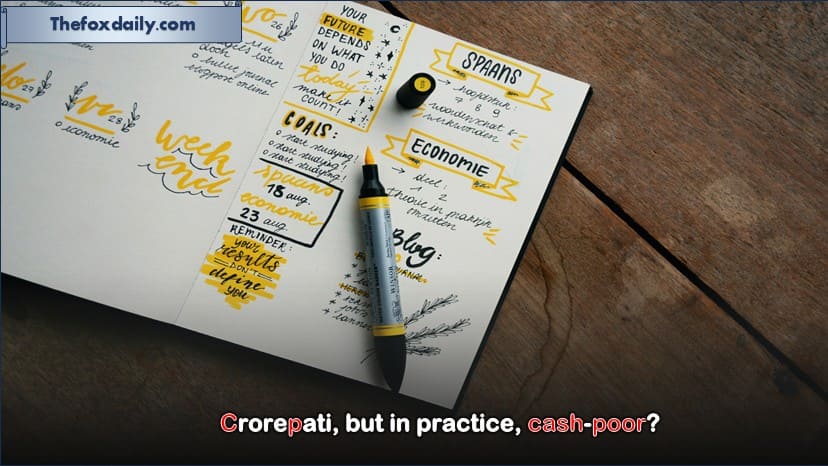
Many people believe they are financially secure when they proudly display their investment accounts, property records, or pay stubs. However, they frequently find themselves having trouble keeping up with daily expenses by the middle of the month. CA Apoorva Gavai claims that even among those with high incomes and expensive assets, this is a prevalent issue.
“Have you ever looked at your property papers or pay stub and thought, ‘I’m doing well,..only to feel broke by the 20th of the month?'” she wrote on LinkedIn. You’re not by yourself. I frequently observe this in my work with people and families of all financial levels: substantial wealth. Well done. own home. A few investments. Still, money worries me all the time.
Given that the numbers appear solid on paper, why does this occur? The distinction between cash flow and net wealth holds the key to the solution.
MONEY IN HAND VS. NET WORTH
What you own less what you owe is your net worth. However, cash flow is the amount of money you really have left over after paying your bills each month. For instance, your net value would be Rs 1 crore if you had a Rs 50 lakh home loan and owned an apartment worth Rs 1.5 crore. “You can be a crorepati on paper, but if your wallet is empty by the end of the month, you have a cash flow issue, not a wealth one,” observes Gavai.
Your wealth cannot be swiftly utilized to cover unforeseen costs or emergencies if the majority of it is invested in real estate or long-term investments.
WHY THIS OCCURS
As their income rises, many people have a tendency to take out big home loans, make significant real estate investments, or raise their lifestyle expenditures.
Their monthly cash flow consequently becomes extremely tight. In the event of an unforeseen crisis, such as a family crisis, job loss, or medical emergency, they might be forced to borrow money or sell long-term investments at a loss.
WAYS TO FIX IT
Gavai advises consumers to save at least six months’ worth of household needs in fully liquid assets, such as sweep FDs or bank savings, and to perform a regular “liquidity audit.” She asserts that accessibility is more important than possessions.
She suggests examining capital efficiency as well. Do you own a second apartment for Rs 50L that rents for Rs 10K? That’s a yield of 0.2% every month. “Not great,” she said.
Simply put, Gavai believes true financial freedom is not only about building assets, it is about having the liquidity to handle emergencies comfortably and sleep peacefully at night.
For breaking news and live news updates, like us on Facebook or follow us on Twitter and Instagram. Read more on Latest Personal Finance on thefoxdaily.com.
COMMENTS 0